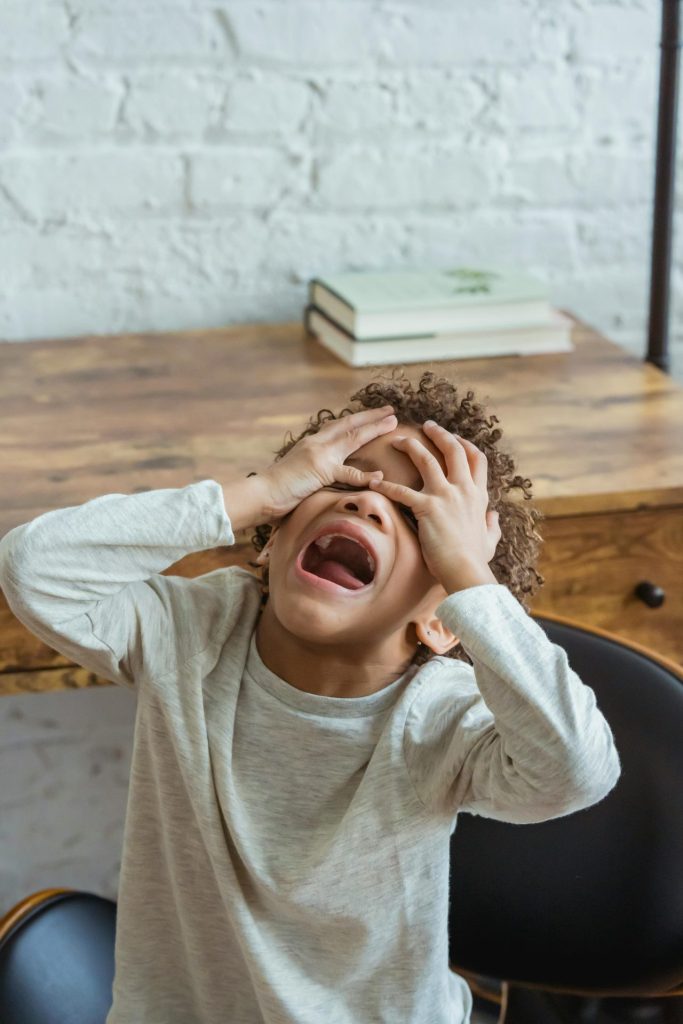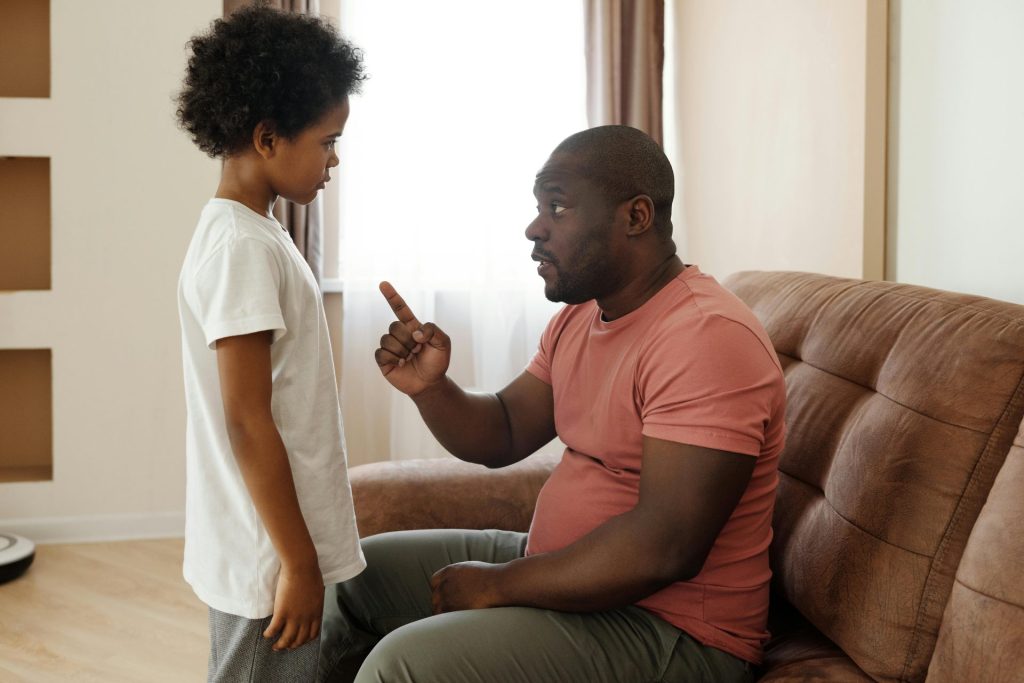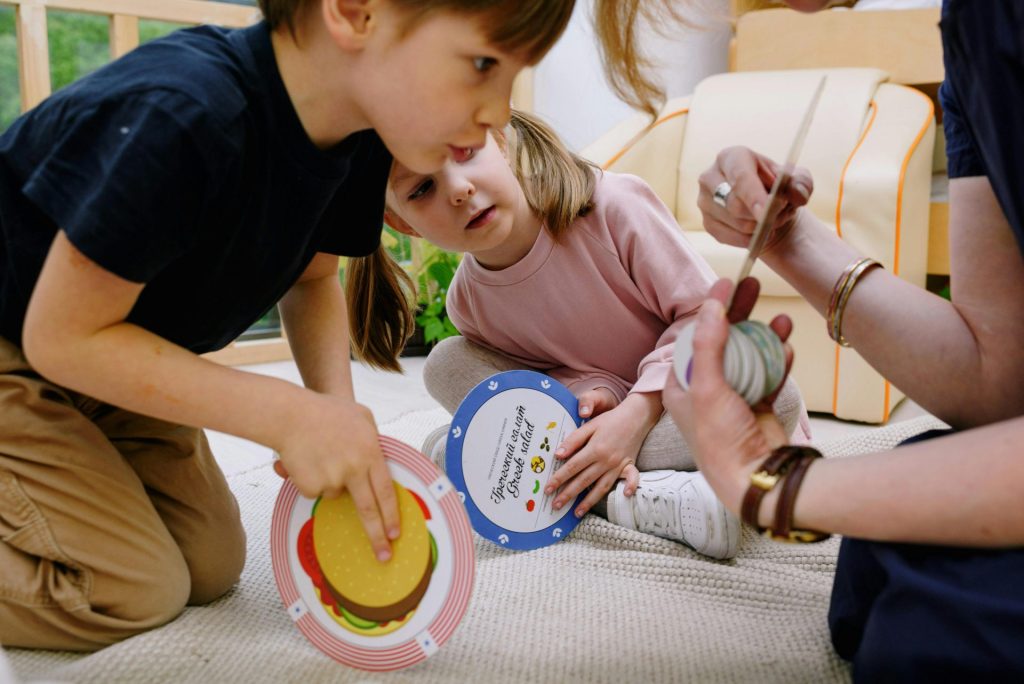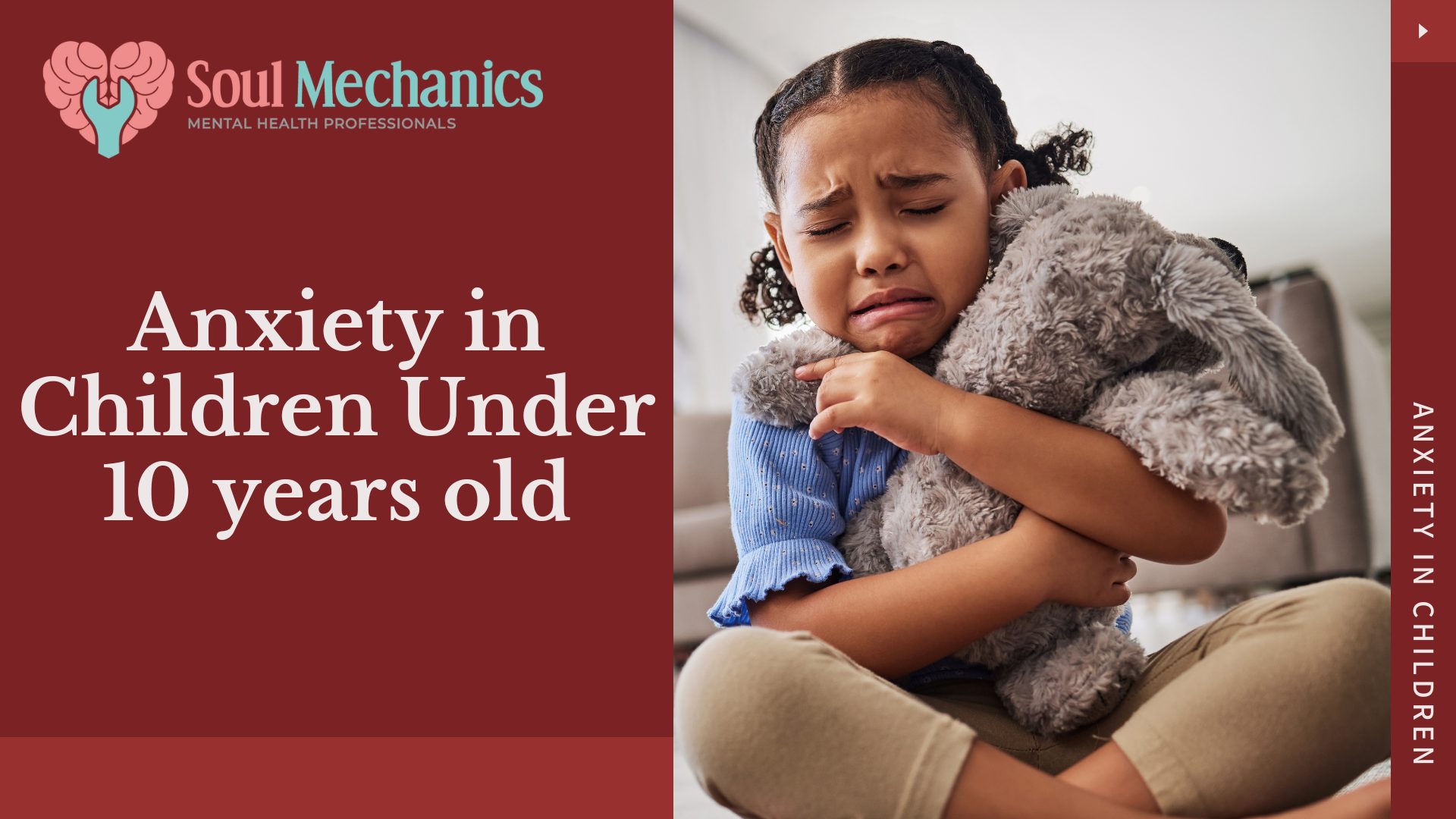Anxiety in Children: Under 10 years old
Anxiety in Children: Under 10 years old
Written By: Navienisha Muniandy (Intern)
Verified By: Kelly Chan Jia Li, Clinical Psychologist (MAHPC(CP)00353)
Are you noticing your child becoming too anxious or afraid frequently?
This might be a sign of anxiety in children, as young as 10 years old. It is not unusual for children to experience anxiety, and recognizing the early signs can help you give them the assistance they require.
If you’re looking for a therapist in Kota Damansara or Ipoh area, you can click here for more information.
What are the Signs of Anxiety in Children?
In young children, anxiety manifests differently compared to older peers.
Here are signs of anxiety among toddlers, preschoolers, and children below 10:
Aggressiveness
They may have unusual outbreaks of anger, sometimes due to feeling overwhelmed or stressed.
Emotional Outbursts
They may display strong emotions such as being constantly irritable, frequently crying, or having temper tantrums for seemingly no reason.

Sleep Disturbances
They may have difficulties falling or staying asleep, which can lead to unpleasant nightmares or waking up repeatedly throughout the night.
Physical Complaints
They may have physical complaints such as stomach aches and headaches that occur frequently and without any prior medical issues.
Changes in Eating Habits
They may have a lack of appetite or overeating.
Tense Muscles
They may experience tightness or stiffness in their muscles.
Clinginess
They may become overly clingy or attached and reluctant to separate from their parents or caretakers.
Repetitive Behaviours
They may engage in repeating tasks or routines as a strategy for coping with anxiety or exerting control over the environment.
Avoidance
They may avoid certain places, activities, or interactions that make them feel anxious or uncomfortable.

What are the Factors that Contribute to Anxiety in Children?
Some common contributing factors include:
Biological factors
Children with a family history of anxiety-related issues are more likely to develop anxiety symptoms at a young age. Additionally, abnormalities of chemical balance in the brain and other physiological factors can influence how the brain processes and responds to stress and fear, increasing the risk of developing anxiety-related conditions.
Social factors
Bullying, pressure from peers, and loneliness can all have a direct influence on a child’s self-esteem and sense of belonging, increasing their likelihood of developing anxiety.
Temperament
Children who are inherently cautious, reserved, or sensitive may be inclined to experience anxiousness. Children might display a lesser tolerance for triggering concern and struggle more with regulating their emotions.
Environment Changes
Experiencing major transitions in life such as relocating to a new house, starting a new school or even a change in daily routine can trigger anxiety in young children. At the same time, conflicts within the family, such as arguments between parents or divorce can also create ripples of anxiety in children.
Parenting style
Overprotective or overly judgmental parenting approaches may hinder the children’s ability to develop coping skills and resilience, causing them to be more prone to anxiety. Whereas, inconsistent or negligent parenting can also increase feelings of anxiety and insecurity.

Traumatic experiences
Experiencing traumatic incidents, such as car accidents, environmental disasters or the death of a loved one may trigger anxiety and can have long-term impacts on a child’s mental health.
How to Support Children with Anxiety?
Validate their Feelings
Accept and validate your child's feelings of anxiousness. Explain to them that it is okay to feel nervous and that you are there with them.
Create a Safe Space for Expression
Create a nurturing and safe environment at home. By establishing this safe space, your child will feel comfortable expressing their emotions and fear without being judged.

Teach Coping Management Skills
Equip your child with coping techniques that they can use when anxiety arises. The coping skills can be deep breathing exercises, mindfulness activities, visualizing calming scenes, or creating a calm-down kit with soothing toys. Furthermore, encourage your child to express their fears, worries, and anxiousness through painting, writing, or even talking. This may help them cope with their feelings better.
Encourage Consistency in Routines
Consistency in routines can provide a sense of stability for young children experiencing anxiety. It is encouraged to establish regular routines for meals, sleeping time, and daily activities to reduce uncertainty which leads to experiencing anxiety.
Provide Reassurance and Encouragement
Offer words of affirmation and reassurance to help boost your child’s confidence in dealing with life adversities. Let them know that it is okay to make mistakes and face challenges in life. It is also encouraged to offer physical affection such as hugs, kisses, and cuddles to reassure and calm your child. Praise your child for confronting their fears and making efforts to manage their anxiety. With that being said, it is also important to respect your child’s boundaries and express affection in a way they are comfortable with.
Get professional help
If your child's anxiety has significantly impacted their daily life functioning, consider seeking support from a mental health expert. Counselors can offer therapy, to help your child understand and manage their anxiety.
SM’s Takeaway
Recognizing anxiety in children requires paying attention to changes in behaviors, emotions, and physical well-being. By understanding these symptoms and providing needed support and reassurance, parents and caregivers can help their children cope with anxiety; building greater resilience and confidence. Remember, you are not alone in this journey. Seeking guidance from a mental health professional can be a proactive step toward assisting your child to flourish.
If you have difficulties managing your child's anxiety, feel free to reach out to our Kota Damansara and Ipoh branch for further information. Seeking assistance can be the first stepping stone towards having a better self-awareness of your child's anxiety.
If you enjoyed reading this, why not broaden the horizon of knowledge by learning about "Anxiety and Depression: Navigating the Connection between them"?
You can read the blog here.
For more content related to mental health do follow us on our official Instagram.

